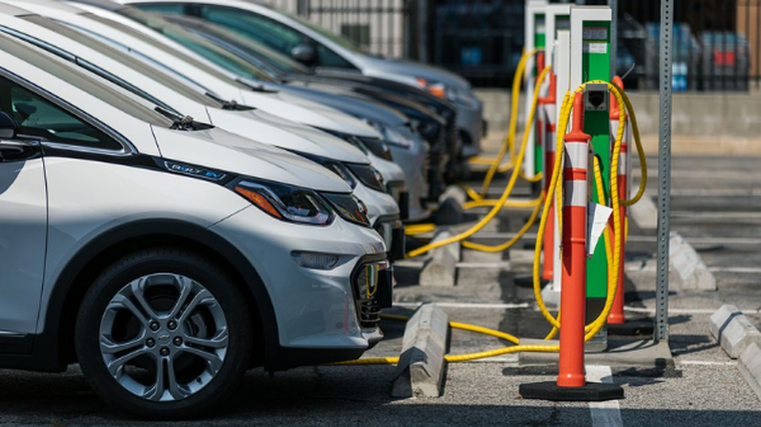Global EV sales to ‘remain robust’

More than one in every five cars sold worldwide this year is expected to be electric, according to new projections by the International Energy Agency (IEA).
Its annual Global EV Outlook forecast sales of electric cars to remain robust in 2024 and total 17 million by the end of the year.
In the first quarter, sales grew by about 25 per cent compared with the same period in 2023 – similar to the growth rate seen in the same period a year earlier, but from a larger base.
The IEA’s report notes the number of electric cars sold globally in the first three months of this year is roughly equivalent to the total sold in all of 2020.
Based on today’s policy settings, it goes on to predict that almost one-third of cars on the roads in China will be electric by 2030, and nearly one in every five for the United States and European Union.
It says the demand for low and zero-emissions models over the next decade is set to “remake the global auto industry and significantly reduce oil consumption for road transport”.
In 2024, electric car sales in China are projected to leap to about 10m and account for about 45 per cent of the market. In the US, roughly one in nine cars sold are tipped to be electric.
Europe has a generally weak outlook for passenger car sales but the IEA is still predicting electric cars will represent about one in every four cars sold this year.
The IEA highlights that such growth builds on a record-breaking 2023, when global electric car sales increased by 35 per cent to almost 14m units.
While demand remained largely concentrated in China, Europe and the United States, its report notes growth also picked up in emerging markets such as Vietnam and Thailand, where electric cars accounted for 15 per cent and 10 per cent, respectively, of all cars sold.
Investment in the electric vehicle (EV) supply chain, ongoing policy support, and declines in the price of such models and their batteries are expected to produce more changes in the years to come.
The study suggests that every other car sold globally is set to be electric by 2035, based on current policy settings. If energy and climate pledges announced by countries are met in full and on time, it estimates two in every three cars sold worldwide will be electric by that date.
Fatih Birol, IEA executive director, says: “The continued momentum behind electric cars is clear in our data, although it is stronger in some markets than others.
“Rather than tapering off, the global EV revolution appears to be gearing up for a new phase of growth. The wave of investment in battery manufacturing suggests the EV supply chain is advancing to meet automakers’ ambitious plans for expansion.
“As a result, the share of EVs on the roads is expected to continue to climb rapidly.”
Keeping up with demand
The report finds manufacturers have taken major steps to deliver on the strengthening EV ambitions of governments, including by making significant financial commitments.
IEA says high levels of investment over the past five years means the world’s capacity to produce batteries for EVs is well positioned to keep up with demand, even as it rises sharply over the next decade.
The pace of the transition to EVs may not be consistent and will hinge on affordability, the report adds.
In China, more than 60 per cent of electric cars sold in 2023 were less expensive to buy than their conventional equivalents.
As for Europe and the US, the purchase prices for cars with internal combustion engines remained cheaper on average, though intensifying market competition and improving battery technologies are expected to reduce prices in the coming years.
The report also says ensuring the availability of public charging keeps pace with EV sales is crucial for continued growth.
The number of public charging points installed globally was up 40 per cent in 2023, when compared with 2022, and growth for fast chargers outpaced that of slower ones.
“However, to meet a level of EV deployment in line with the pledges made by governments, charging networks need to grow sixfold by 2035,” the outlook explains.
“At the same time, policy support and careful planning are essential to make sure greater demand for electricity from charging does not overstretch electricity grids.”





